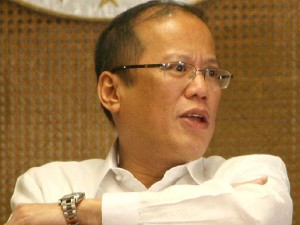Aquino pressed on economic reforms
The Aquino administration must institute key economic reforms that will enable the country to sustain its robust economic performance, according to the country’s biggest business organization.
The Philippine Chamber of Commerce and Industry (PCCI) issued the statement as the country’s economic managers begin to identify priorities for a growth agenda for the last half of President Aquino’s term. These reforms are expected to tap the “full potential of a competitive private sector to create more jobs, generate more incomes and lift more Filipinos out of poverty.”
“The Philippines has been one of the, if not the best, performing economy in Asia under President Aquino’s helm as reflected in unparalleled economic growth rates, investment upgrades, improved national competitiveness and an all-time trust rating in our institutions. The challenge now is to institute economic reforms to sustain this growth,” said PCCI president Miguel B. Varela.
According to Varela, the Aquino administration must address the high cost of electricity by crafting a roadmap for the power sector premised on achieving reliable and sustainable supply and competitive rates; address the high cost of logistics and lack of quality transportation infrastructure by accelerating the implementation of PPP (public-private partnership) projects and the adoption of a national transportation plan, and reform the Bureau of Customs to reduce smuggling and make the necessary laws for the country to comply with the Revised Kyoto Convention.
Other economic reforms should address conflict between national laws and local laws to ensure the consistency of local government issuances to national policies in mining activities, valuation process in property assessments, and granting of business permits, among others, and tackle the weak competition culture and regulatory capture by adopting a sound and coherent competition policy and passage of a competition law.
Article continues after this advertisementThe PCCI further called on the government to adopt an industrial roadmap for Philippine industries to be able to compete after the Asean integration in 2015; review existing incentive-giving laws to assess, reconsider and harmonize these to be more efficient and effective, and work with the judiciary to reform procedures and practices that will ensure consistency, objectivity and sustainability of decisions that impact on business and the economy.
Article continues after this advertisementVarela pointed out that the proposed reforms were urgent to enable the private sector to fully avail itself of the market and employment opportunities promised under the Asean economic integration.
“In the run-up to 2015, the Philippines and the other Asean countries are filling up voids for competition and complementation. Asean members have been readying their own support systems to improve energy supplies, transportation and logistics facilities, telecommunications, fair competition rules, administrative clearances, legislative and judiciary support and infrastructures,” Varela explained.
“We hope that these economic reforms will be included in the President’s priorities as he works to leave behind his economic legacy for the country,” Varela said. “We look forward to work with him to implement these measures that will sustain the country’s economic gains, and at the same time, ensure that such gains will redound to the benefits of more Filipinos.”
